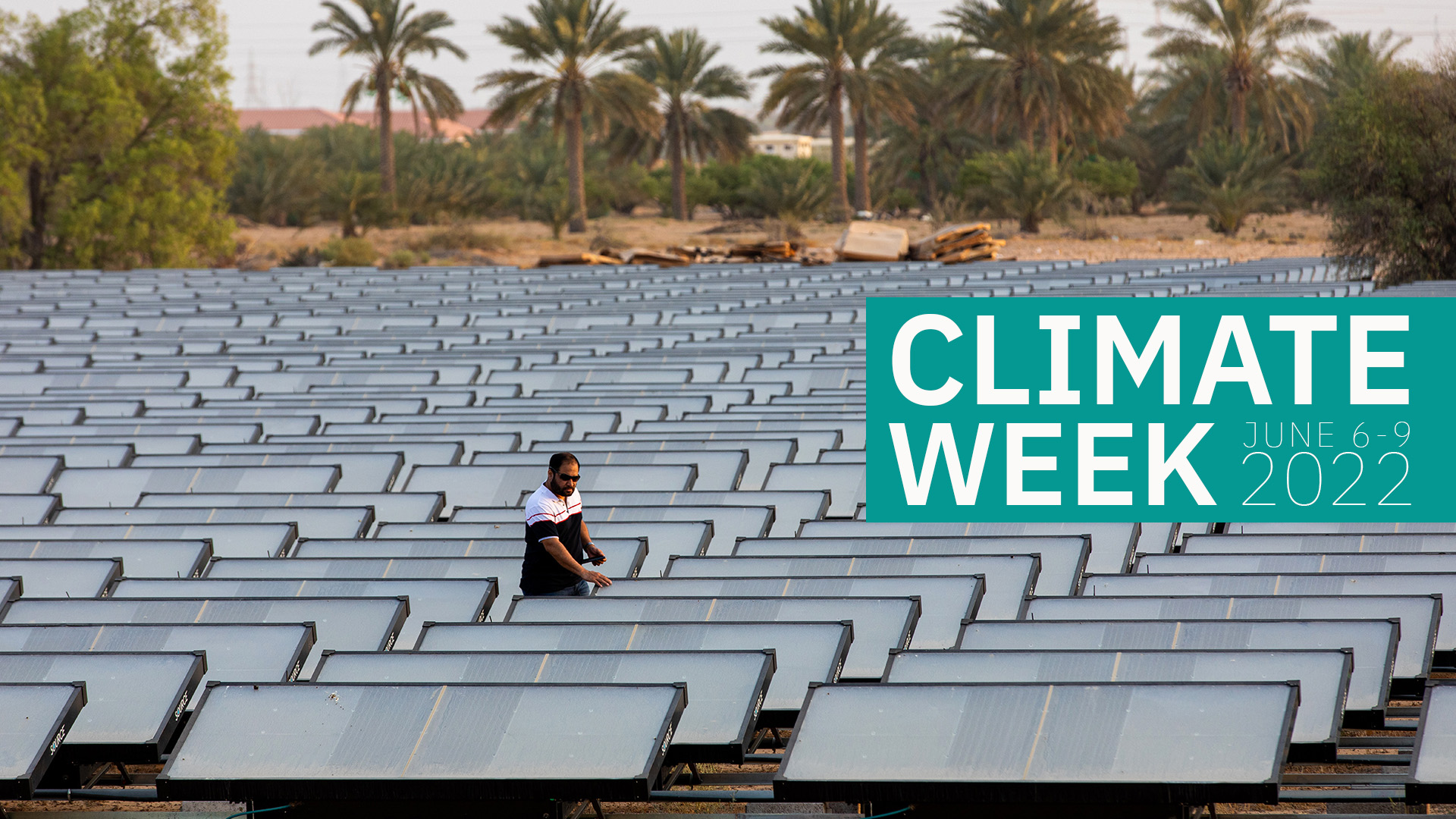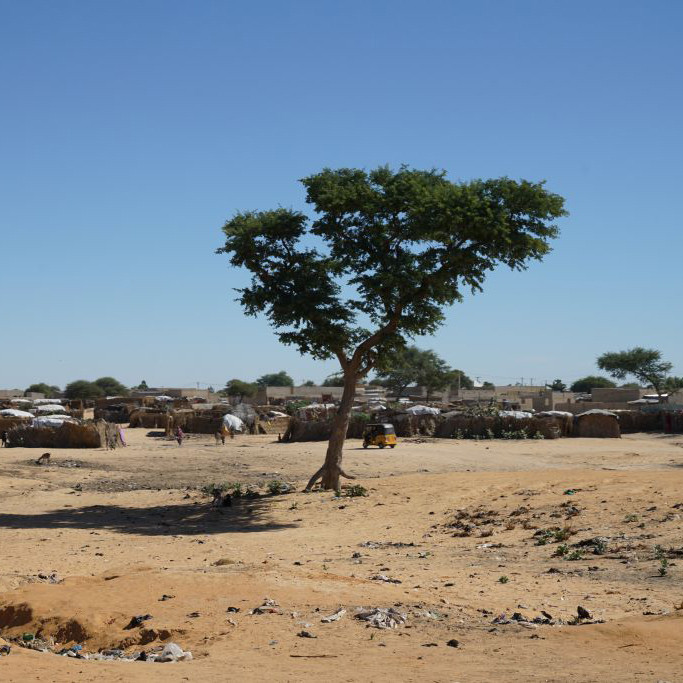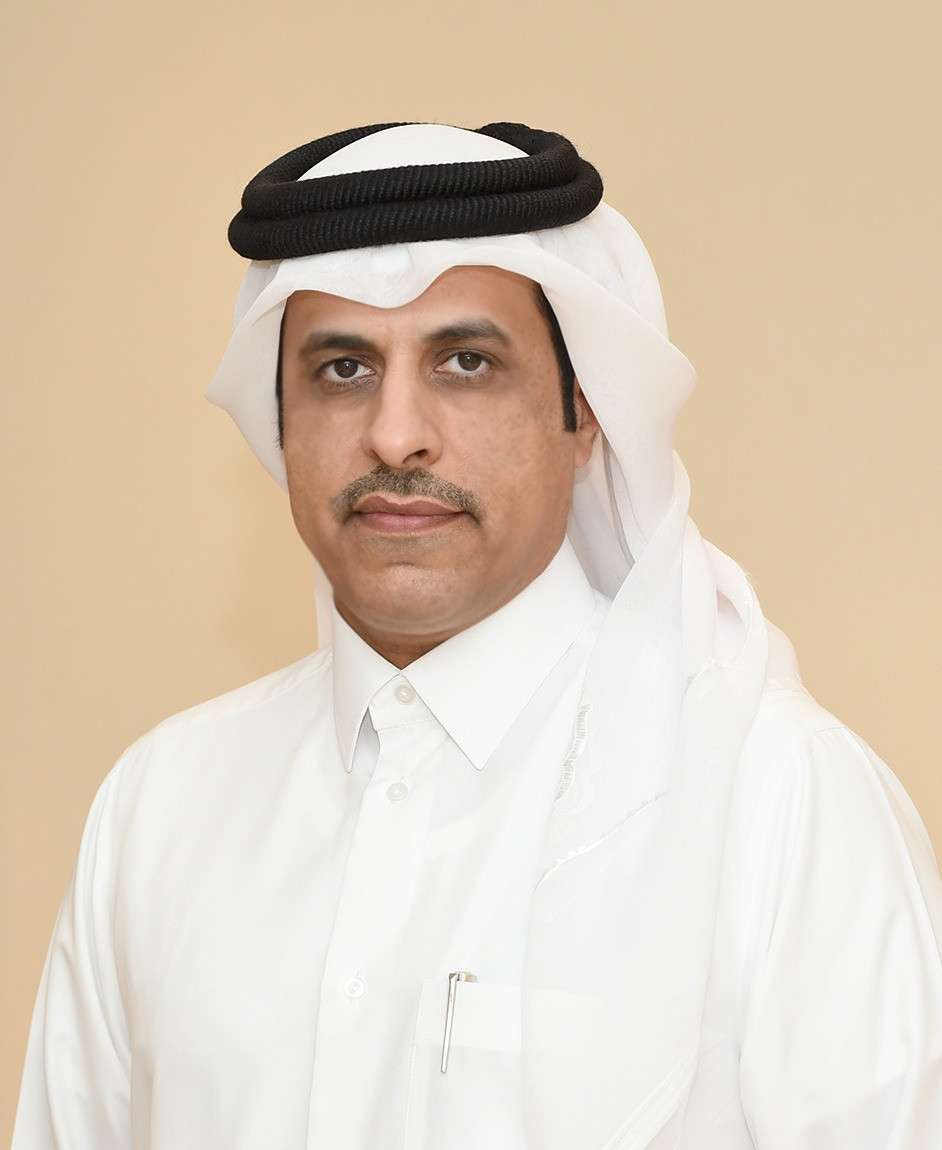


Thank you for joining MEI Climate Week!
The Middle East Institute was pleased to host its inaugural Climate Week Conference June 6-9. The four-day virtual conference convened experts on climate change and its impacts for discussions focused on the key contemporary issues related to climate change facing the Middle East and North Africa, as well as future prospects for adaptation and resilience across sectors.

Featured Speaker: Eng. Ahmed Mohammed Al-Sada
The Middle East Institute was pleased to host Eng. Ahmed Mohammed Al-Sada, Assistant Undersecretary in the Ministry of Environment and Climate Change for the State of Qatar, for a keynote address to kick off the 2022 Climate Week virtual conference. His address offered valuable insights regarding Qatar’s various initiatives and programs on climate change mitigation, adaptation, and engagement.
Conference Recap
Monday, June 6, 2022
World Environment Day Keynote Presentation
The Middle East Institute is pleased to host Eng. Ahmed Mohammed Al-Sada, Assistant Undersecretary in the Ministry of Environment and Climate Change for the State of Qatar, for a keynote address to kick off our 2022 Climate Week virtual conference. His address will offer valuable insights regarding Qatar’s various initiatives and programs on climate change mitigation, adaptation, and engagement.
Tuesday, June 7
Locally-Led Adaptation: The Future of Resilient Cities
Major cities and urban population centers in the Middle East and North Africa (MENA) will face unique challenges due to climate change that will put them on the forefront of multiple climate risks. Ensuring the long-term sustainability of these cities will require the mainstreaming of innovative and climate-smart strategies that enhance the climate resilience of their public services, water infrastructure, energy portfolios, urban development, and economic productivity. Considering the various pressures that climate change will place on MENA cities, how prepared are metropolitan areas in the region for these anticipated pressures? What opportunities are still available for cities to incorporate in order to better mitigate against and adapt to the worst vulnerabilities facing them from future projected impacts of climate change?
Karim Elgendy Founder and Coordinator, Carboun
Jesus Sancho Middle East Managing Director, Acciona
Tanzeed Alam Managing Director, Earth Matters Consulting
Erfan Ali Regional Representative, UN Habitat Regional Office for the Arab States
Andrei Covatariu (moderator) Co-founder, Ecological Economics Research for Action
Wednesday, June 8
Disaster Preparedness: Adapting to Extreme Events
The Middle East and North Africa (MENA) has experienced severe climate outcomes due to rising global temperatures over the last decade. This was accentuated most recently when the region experienced record-breaking summer temperatures in multiple cities, one of the worst regional droughts on record, and an amplified tropical cyclone season that led to a historically devastating cyclone making landfall in the Arabian Peninsula; all within the last year. In terms of extreme events, MENA is acutely vulnerable to droughts, wildfires, extreme heat, sea level rise, and extreme weather events; like tropical cyclones and short-duration intense thunderstorms that trigger massive flooding. When it comes to this wide spectrum of potential extreme events, how prepared is the region to dealing with these climate outcomes? And what can the region do to be better equipped to handle these extreme events as they occur with greater intensity, duration, and frequency?
Ruba Ajjour Manager of Climate Change Studies Division, Royal Scientific Society, Amman
Mohammed Al-Shaker Meteorologist, Founder, and CEO of ArabiaWeather Inc.
Aysha Alsuwaidi U.A.E. Ministry of Presidential Affairs
Mohammed Mahmoud (moderator) Climate and Water Program Director, Middle East Institute
Thursday, June 9
The Current State of Climate Activism
In recent years, climate activism has risen to a position of prominence on the world stage, thereby encouraging people from every region of the world to speak out and demand meaningful climate action from their governments and industry leaders. Despite the international nature of this movement, climate activism in the Middle East and North Africa (MENA) region does not receive the same intensity of media coverage as similar movements in Europe and North America. Furthermore, economic crises, war, quasi-state systems and authoritarian governance in the region have historically inhibited public protest and civil society activism. What does this unique set of circumstances mean for the state of climate activism in the region? What unique opportunities exist for MENA climate activists and how can these be capitalized on to further the cause of climate justice?
Nisreen Elsaim Chair, UN Secretary General's Youth Advisory Group on Climate Change
Mohamed Elshikhi Director, Libya Youth Council for Climate Change
Zeina Moneer Fulbright Scholar, New Hampshire University
Hafsa Halawa Non-resident Scholar, Middle East Institute
Neeshad Shafi (moderator) Executive Director, Arab Youth Climate Movement Qatar
Photo: Christopher Pike/Bloomberg via Getty Images










